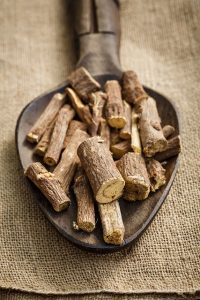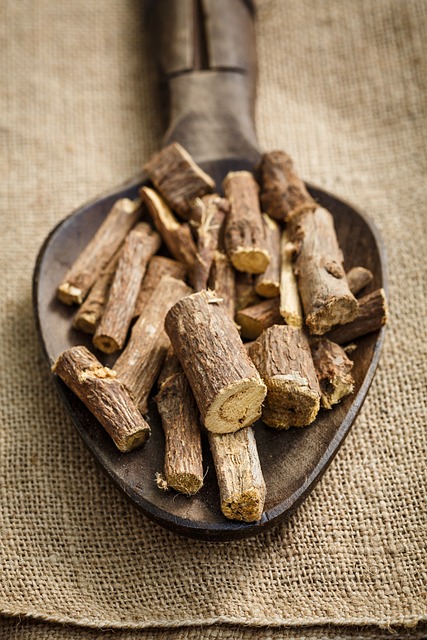Indigestion is a common digestive problem that affects millions of people worldwide. It is characterized by discomfort or pain in the upper abdomen, bloating, and nausea. Indigestion can be caused by various factors, including lifestyle habits, medical conditions, and diet.
While over-the-counter medications are available to treat indigestion, natural solutions can be just as effective and have fewer side effects. In this article, we will explore the causes of indigestion and the benefits of natural remedies.
What is Indigestion?
 Indigestion, also known as dyspepsia, is a condition that occurs when the digestive system is unable to break down food properly. This can lead to discomfort or pain in the upper abdomen, bloating, and nausea. Indigestion can be acute or chronic and can occur at any age.
Indigestion, also known as dyspepsia, is a condition that occurs when the digestive system is unable to break down food properly. This can lead to discomfort or pain in the upper abdomen, bloating, and nausea. Indigestion can be acute or chronic and can occur at any age.
Symptoms of indigestion include a feeling of fullness after eating, burning sensation in the stomach or chest, bloating, belching, and nausea. These symptoms can be mild or severe and can last for a few hours to several days.
There are two types of indigestion: functional and organic. Functional indigestion occurs when there is no underlying medical condition causing the symptoms. Organic indigestion occurs when there is an underlying medical condition such as gastroesophageal reflux disease (GERD), peptic ulcer disease (PUD), or gallstones.
Causes of Indigestion
Indigestion can be caused by various factors such as lifestyle habits, medical conditions, and diet.
Common causes of indigestion include overeating, eating too quickly, consuming fatty or spicy foods, drinking alcohol or caffeine, smoking cigarettes, stress and anxiety.
Lifestyle factors that contribute to indigestion include lack of exercise, poor sleep habits, and obesity.
Medical conditions that cause indigestion include GERD, PUD, gallstones, pancreatitis, and celiac disease.
Benefits of Natural Solutions
Natural remedies for indigestion have several advantages over over-the-counter medications. They are often less expensive, have fewer side effects, and can be just as effective.
Over-the-counter medications such as antacids and proton pump inhibitors (PPIs) can provide temporary relief from indigestion symptoms. However, they can also have side effects such as diarrhea, constipation, and headaches. Long-term use of PPIs can also increase the risk of bone fractures and infections.
Natural remedies such as herbs and dietary changes can provide long-term benefits for digestive health. They can improve digestion, reduce inflammation, and promote overall wellness.
Herbal Remedies for Indigestion
Several herbs can aid digestion and provide relief from indigestion symptoms. These include ginger, peppermint, chamomile, fennel, and licorice root.
Ginger has anti-inflammatory properties that can reduce inflammation in the digestive system. Peppermint can soothe the stomach and reduce nausea. Chamomile has a calming effect on the digestive system and can reduce inflammation. Fennel can reduce bloating and gas. Licorice root can increase mucus production in the stomach lining, which can protect against acid reflux.
Herbs can be consumed in various forms such as teas, capsules, or tinctures. It is important to follow dosage instructions carefully and consult with a healthcare provider before using herbal remedies.
Dietary Changes for Indigestion
Dietary changes can also provide relief from indigestion symptoms. Foods to avoid include fatty or spicy foods, caffeine, alcohol, carbonated beverages, and acidic foods such as tomatoes or citrus fruits.
Foods that aid digestion include high-fiber foods such as fruits and vegetables, whole grains, lean proteins such as chicken or fish, and probiotic-rich foods such as yogurt or kefir.
Healthy eating habits such as eating slowly, chewing food thoroughly, and avoiding large meals can also improve digestion.
Home Remedies for Indigestion
Simple remedies using ingredients from the kitchen can also provide relief from indigestion symptoms. These include drinking warm water with lemon juice, consuming apple cider vinegar, or chewing on fennel seeds.
It is important to prepare and use home remedies carefully and follow dosage instructions. Some remedies may not be suitable for everyone, and it is important to consult with a healthcare provider before using them.
When to See a Doctor for Indigestion
While natural remedies can provide relief from indigestion symptoms, severe or persistent symptoms may require medical attention. Signs that indigestion requires medical attention include difficulty swallowing, unintentional weight loss, vomiting blood, or severe abdominal pain.
Tests and procedures for diagnosing indigestion may include an upper endoscopy, abdominal ultrasound, or blood tests. Treatment options for severe indigestion may include prescription medications or surgery.
Indigestion is a common digestive problem that can be caused by various factors such as lifestyle habits, medical conditions, and diet. While over-the-counter medications are available to treat indigestion, natural solutions such as herbs and dietary changes can provide long-term benefits for digestive health.
It is important to consult with a healthcare provider before using natural remedies or making dietary changes. Severe or persistent symptoms may require medical attention. By taking care of our digestive health, we can improve our overall wellness and quality of life.









